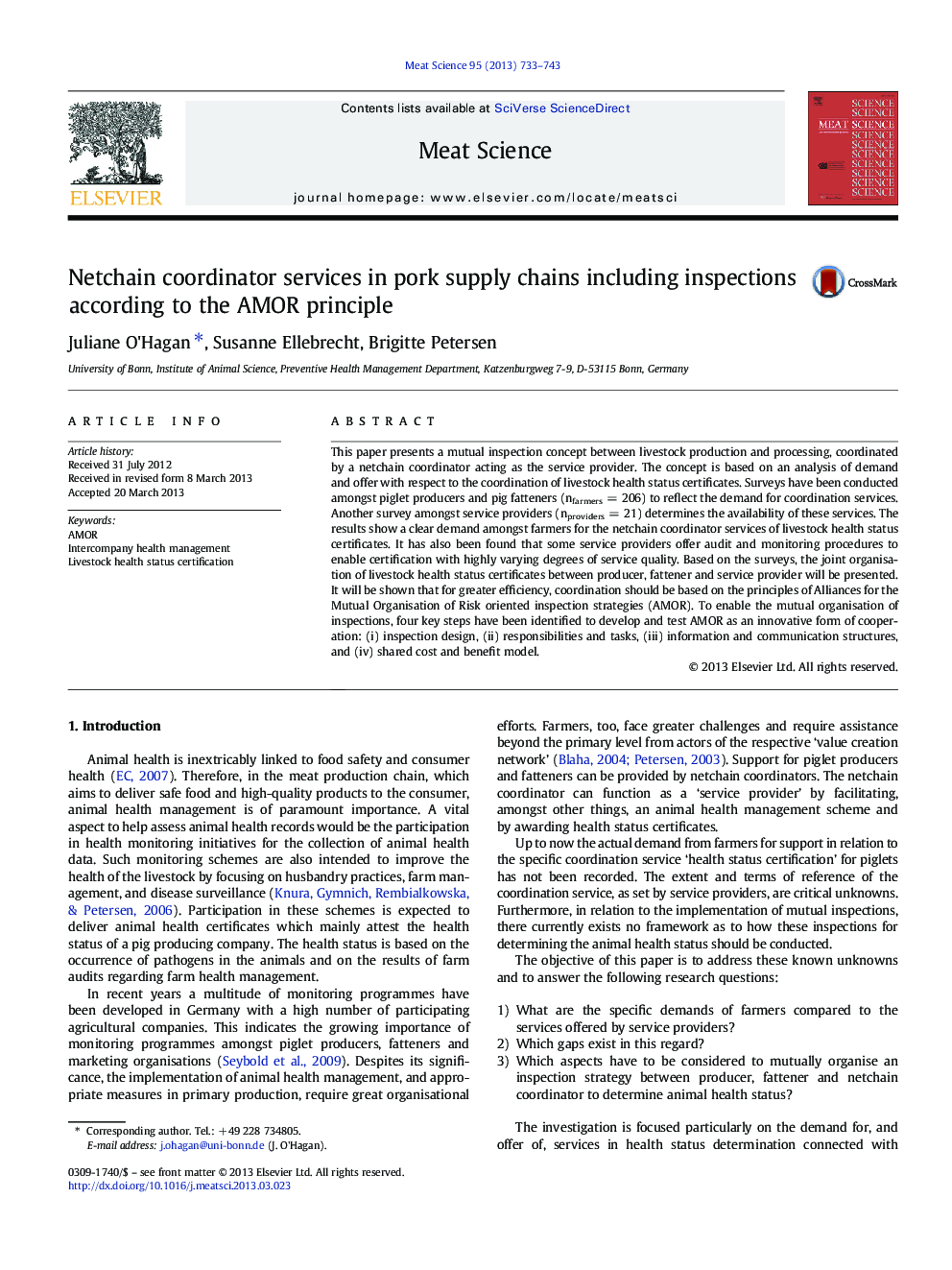| Article ID | Journal | Published Year | Pages | File Type |
|---|---|---|---|---|
| 5792242 | Meat Science | 2013 | 11 Pages |
Abstract
This paper presents a mutual inspection concept between livestock production and processing, coordinated by a netchain coordinator acting as the service provider. The concept is based on an analysis of demand and offer with respect to the coordination of livestock health status certificates. Surveys have been conducted amongst piglet producers and pig fatteners (nfarmers = 206) to reflect the demand for coordination services. Another survey amongst service providers (nproviders = 21) determines the availability of these services. The results show a clear demand amongst farmers for the netchain coordinator services of livestock health status certificates. It has also been found that some service providers offer audit and monitoring procedures to enable certification with highly varying degrees of service quality. Based on the surveys, the joint organisation of livestock health status certificates between producer, fattener and service provider will be presented. It will be shown that for greater efficiency, coordination should be based on the principles of Alliances for the Mutual Organisation of Risk oriented inspection strategies (AMOR). To enable the mutual organisation of inspections, four key steps have been identified to develop and test AMOR as an innovative form of cooperation: (i) inspection design, (ii) responsibilities and tasks, (iii) information and communication structures, and (iv) shared cost and benefit model.
Keywords
Related Topics
Life Sciences
Agricultural and Biological Sciences
Food Science
Authors
Juliane O'Hagan, Susanne Ellebrecht, Brigitte Petersen,
